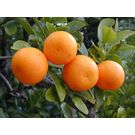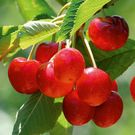O-Tenga / Elephant Apple / Chalita Fruit Plant
Rs.799
Rs.799
In Stock
Ships in 5 - 7 Days
Shipping Cost Per Unit Rs.49

Description
Origin of Elephant Apple
Elephant apple is native to Indonesia, but has spread to India, Sri Lanka, China, Vietnam, Thailand, Malaysia and Indonesia.
Elephant apple is native to Indonesia, but has spread to India, Sri Lanka, China, Vietnam, Thailand, Malaysia and Indonesia.
Though “elephant apple” is often used interchangeably with “wood apple,” the two are quite different in taste, appearance and its scientific categorization.
Availability of Elephant Apple in India
Elephant apple is a staple in the villages where the fruit grows, but isn’t as well known in urban cities. The fruit grows well in the northern tropical regions of India, particularly in Assam and Kolkata. Other parts of India where the elephant apple grows are the dry hill areas of Bihar, Orissa, Karnataka, Andhra Pradesh and Madhya Pradesh. The fruit thrives in swamps and semi-tropical forests.
The tree bears fruit from October through January.
Checking for Ripeness in Elephant Apple
Ripe elephant apples are apparent in color: unripe fruits are green, and as they ripen, become straw yellow with a green tinge.
Taste of Elephant Apples
The gelatinous pulp surrounding the sepals inside an elephant apple is generally pleasant, but acidic. The fruit is seldom consumed raw, but those who choose to eat it typically add sugar to improve the taste. At its best, taste resembles unripe apples; at worst, it’s mealy and possesses an odor offensive to some.
Nutritional Value of Elephant Apple
According to the book, “The Encyclopedia of Fruit and Nuts,” the nutritional value per 100g of edible elephant apple flesh is:
59kcal
.8% Protein
.2-2.5% Fat
2.1-2.5% Fiber
3.54% Ash
16mg Calcium
26mg Phosphorous
4mg Ascorbic Acid
Health Benefits of Elephant Apple
The elephant apple has been used for its curative properties in Indian society for centuries. It’s a fruit commonly used in Ayurveda to treat nervousness, stomach upsets and fatigue. Additionally:
--The bark and juice from the leaves were given as a treatment for diarrhea and cancer
--Rubbing the fruit’s gummy substance in the scalp is believed to treat dandruff and hair shedding.
Mainstream scientific studies affirm the following properties of elephant apple:
--The International Journal of Pharmaceutical Sciences and Research published reports by scientists in Assam citing the fruit’s antidiabetic properties and high phytochemicals
--The Journal of Global Pharma Technology published a report lauding the fruit’s antimicrobialproperties
--The International Journal of Pharmacology reported studies indicating the elephant apple bark’sanalgesic qualities
--A 2009 study in “Pharmacology” conducted by scientists in India reveals elephant apple’s anti-inflammatory properties
How to Open/Cut:
Preparing elephant apple isn’t very intuitive: if eating the fruit raw and out of hand, the edible portion is the gelatinous flesh surrounding the pistons.
The “petals” shown in the diagram may also be cut lengthwise into strips, pressure cooked with a pinch of turmeric to soften, and then sautéed and stewed as a curry fry.
Use caution when opening the fruit, as the inside can be slippery.
Elephant Apple Recipe Ideas and Uses:
Elephant apples are ubiquitous in Assamese cuisine. Like several other edible yet acidic fruits, elephant apple is traditionally used in the following ways:
--Elephant apple aromatizes curry: A bit of the flesh’s acidity counterbalances the curry’s oils quite nicely
--Unripe elephant apples make a zesty, pungent pickled chutney
--Crushed elephant apple adds a piquant flavor to dal recipes: use half of a crushed elephant apple for every 250mg of lentils
--The jelly-like pulp us used for jams and preserves
--When sugar is added, the fruit makes a light, refreshing juice.
You may also be interested in
Look for Similar Items by Category
Powered by infibeam









